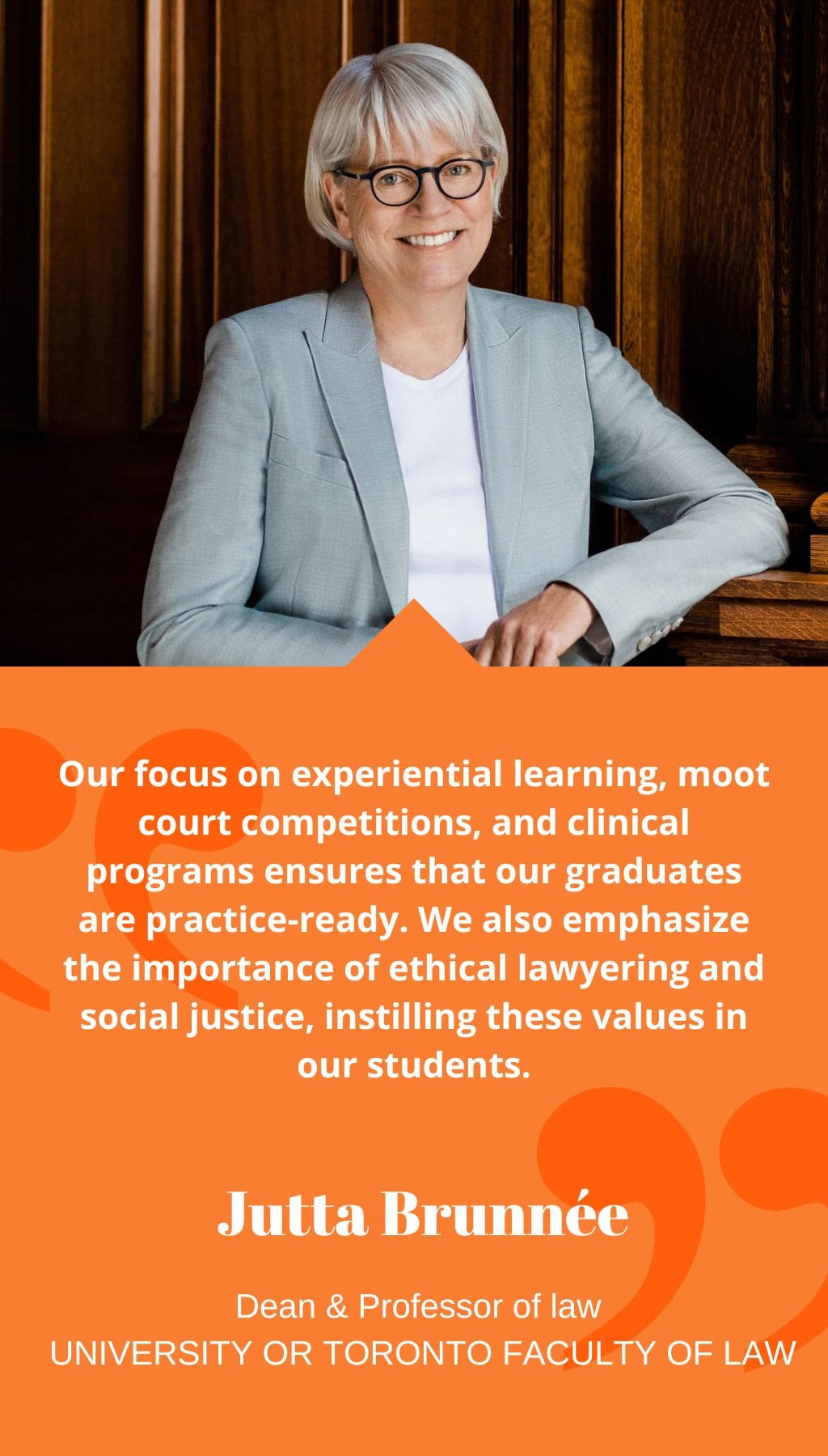
- Canada | 23 June 2023

How has the field of legal education evolved in Canada, and what role does the University of Toronto Faculty of Law play in this transformation?
Legal education in Canada has evolved significantly to meet the changing demands of the legal profession. At the University of Toronto Faculty of Law, we’ve been at the forefront of these changes. We continuously adapt our programs to equip our students with the skills and knowledge needed to excel in a rapidly evolving legal landscape.
Could you share some insights into the unique aspects of legal education at the University of Toronto, and how they prepare students for the legal profession?
The University of Toronto Faculty of Law offers a rigorous and innovative curriculum that blends theoretical knowledge with practical skills. Our focus on experiential learning, moot court competitions, and clinical programs ensures that our graduates are practice-ready. We also emphasize the importance of ethical lawyering and social justice, instilling these values in our students.
How does the University of Toronto Faculty of Law contribute to legal research and scholarship in Canada, and what are some notable achievements in this regard?
Our faculty members are leaders in legal research, producing groundbreaking scholarship that influences Canadian jurisprudence and international law. We take pride in our research centers and institutes, such as the David Asper Centre for Constitutional Rights and the International Human Rights Program, which address pressing legal issues.
In what ways does the University of Toronto Faculty of Law foster a diverse and inclusive legal community, and why is this important for the legal profession?
Diversity and inclusion are core values at our institution. We actively recruit and support students from diverse backgrounds, ensuring that our legal community reflects the rich tapestry of Canada. Inclusion is not only a matter of equity; it also enhances legal practice by bringing different perspectives to the table.
What advice would you give to aspiring law students, particularly those considering studying in Canada, and how can they make the most of their legal education experience?
I would advise aspiring law students to approach their legal education with curiosity and a commitment to lifelong learning. Seek out opportunities for internships, clerkships, and pro bono work. Engage with your professors, fellow students, and the broader legal community. Remember that law is a profession dedicated to justice, and your contributions can make a meaningful impact.
The legal profession is evolving rapidly, influenced by technology, globalization, and societal changes. How does the University of Toronto Faculty of Law prepare students to navigate these challenges?
We recognize the importance of preparing students for the evolving legal landscape. Our curriculum includes courses on legal technology, ethics in the digital age, and transnational law. We also emphasize critical thinking and adaptability, ensuring that our graduates are well-equipped to tackle emerging legal challenges.
What message would you like to convey to the international legal community about the value of legal education in Canada and the contributions of the University of Toronto Faculty of Law?
Canada offers a world-class legal education that combines academic excellence with a commitment to justice and diversity. The University of Toronto Faculty of Law, as a leading institution, is dedicated to shaping the future of the legal profession, producing ethical and skilled lawyers who can make a positive impact on society. We invite the international legal community to join us in this important journey.














